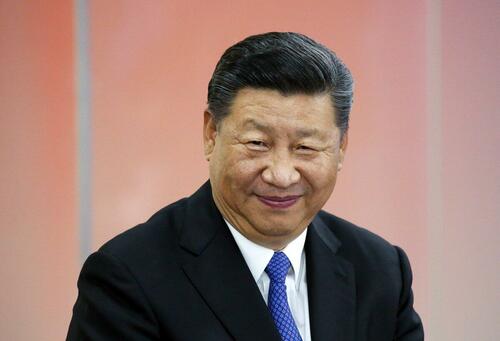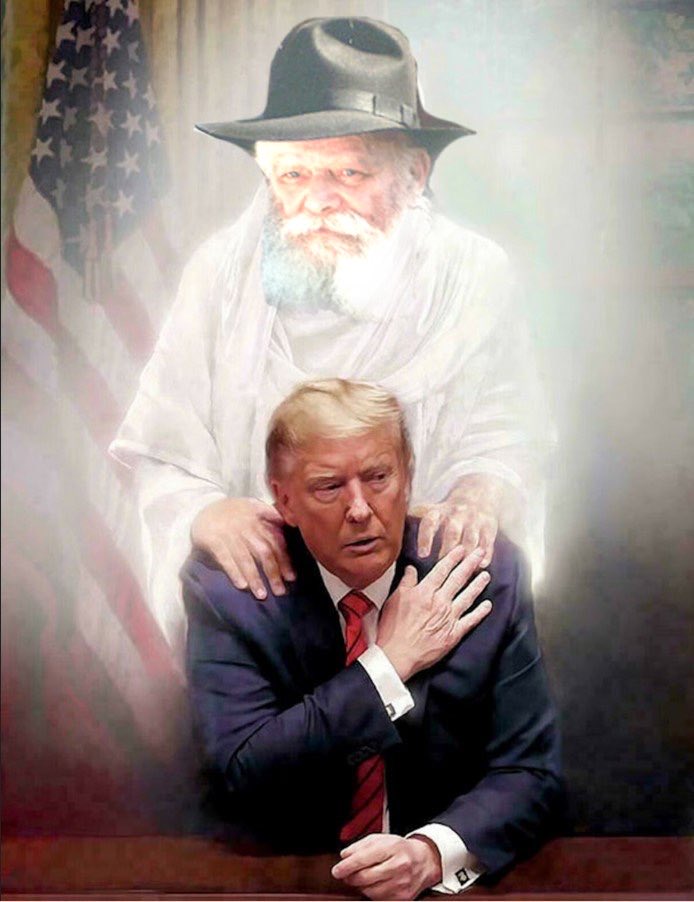
Taiwan: Will Xi Or Won’t Xi?
Authored by Grant Newsham via RealClearDefense,
Chinese leader, Xi Jinping has been clear that he intends to get Taiwan – one way or another.
He has good reasons.

It would establish Xi as one of the immortals by accomplishing something Mao Tse Tung couldn’t. By taking Taiwan, China breaks through the first island-chain – the island nations stretching from Japan to Taiwan and on to the Philippines and Malaysia – that constrain China’s freedom of access to the Pacific and beyond. Break the chain and the PLA then gets easy access to the Pacific and potentially can surround Japan, cut-off Australia and move onwards.
These are operational advantages.
As important are the political and psychological advantages. Take Taiwan and Beijing has demonstrated the U.S. military couldn’t save the 23 million free people of Taiwan. Neither could American economic and financial pressure. And U.S. nuclear weapons didn’t stop China either.
In capitals all over Asia, the calculus will change, and many will cut the best deals they can and turn ‘red’ overnight rather than try to withstand Chinese pressure on their own. The United States will be finished as a Pacific power. And globally nobody will trust a U.S. promise of protection – explicit or implicit.
Can China Take Taiwan?
The recently released 2024 DOD China Military Power Report presents a grim picture of a rapidly developing Chinese military.
But the report assesses that while Taiwan is a prime target, the Chinese military just isn’t ready for operations against the island.
No matter how much progress the PLA makes, it seems it’s never quite ready to attack Taiwan.
China experts can rattle off the reasons why a Chinese assault on Taiwan won’t be coming in the near future.
Here’s the bingo card of reasons. And why, perhaps, the arguments may not be all they seem.
1. There are only two short windows during the year (April and October) when the weather is good enough for an invasion force to get across the Taiwan Strait.
When asked about this, a Taiwanese oceanographer noted: “Look at the ferry schedules. They run all year.” And someone should have told Dwight Eisenhower about the weather in June 1944. He only needed 72 hours of decent weather to get across the English Channel.
2. Only a tiny number of narrow beaches on Taiwan’s west coast are suitable for an amphibious landing.
Amphibious forces sometimes don’t need much of a beach…or one at all…if you’ve hit the defender hard enough or deceived him. The U.S. Marines pushed a division across a beach about 200 yards wide in one day at Tinian in 1944. And amphibious operations include troops delivered by helicopter, airborne, and infiltrated in advance along with fifth columnists.
3. PLA needs to seize a port — and that’ll never happen because 1) it’s a port and Taiwan is presumably defending it; 2) The Chinese are not smart enough to have their fifth column, including organized crime, already in place to open up, say, Kaohsiung.
The “barges” China is building can, in combination with redundant ships, be used to build breakwaters and other components of an artificial port.
4. PLA hasn’t got the 'lift’ – enough ships – to take troops and equipment across the strait.
A Marine Corps University professor in the late 2010’s had a PowerPoint presentation making this case. He was counting the wrong ships. Add in ‘old’ amphibious ships and civilian ships and boats that were integrated under the ‘military-civil fusion’ doctrine and the PLA had plenty of lift. It’s got even more now. And the world’s second largest merchant marine has more than enough shipping to deliver up to six brigades and 60 days of supplies (particularly if they build an artificial harbor).
5. Amphibious operations are the hardest, most complex military operation known to man.
This argument boils down to ’the Chinese just aren’t as smart as us.’ That’s mistaken and when it comes to amphibious operations read Toshi Yoshihara’s book on how they performed in the Chinese Civil War.
6. PLA can’t do joint operations.
Look at recent exercises and ongoing training. They’re getting better. In fact, they’ve been doing joint training for going on two decades and intensely since Xi came to power 12 years ago. And you don’t have to be perfect. Just good enough to do a specific task in a specific place.
7. PLA can’t do 'joint logistics over-the-shore.’
Once again, the Chinese aren’t smart enough and can’t possibly be our equals.
8. The PLAN has aircraft carriers but they’re nowhere near our level.
Do you see a pattern? The Chinese aren’t intelligent or capable enough. Just as was said about the Japanese in 1941. Remember, the PLA’s carriers will be operating within and along the edge of the First Island Chain and with the support of the PLAAF and PLA Rocket Force.
9. PLA hasn’t got combat experience.
Neither does the U.S. Navy, except against the Houthi Navy. And the rest of the U.S. military hasn’t fought a high-end opponent in decades.
10. The PLA is corrupt.
Andrew Erickson at the Naval War College gets it right: “If Xi and the PLA were in the disarray that some myopically focused on their system’s chronic corruption imagine, there’s no way China’s military could be developing, deploying, exercising, and otherwise preparing in the ways that the CMPR chronicles.”
11. Xi Jinping can’t trust his generals and admirals.
Neither could Hitler or Stalin. One almost got to Moscow. The other took Berlin.
12. The PLA is ‘restive’ and pushing back at Xi’s efforts to give himself total power.
Have we ever seen any real evidence that any PLA officer has “pushed back”? And on our side, how many U.S. Navy admirals pushed back against the systematic degrading of their service’s capabilities over the last 30 years? It was also said before 1939 that the Wehrmacht Generals – the elite of the elite – would never actually let ‘that Corporal’ run things.
13. The Chinese can’t innovate. They can only copy.
There’s ‘Chinese ingenuity’ just as there was ‘Yankee ingenuity.’ It works well enough, no matter who invented the thing improved upon. the PLA Strategic Rocket Force has been very innovative…anyone heard of the DF-21D, DF-26, and DF-17? Or the new Type 076 amphibious assault carrier that is going to carry and launch drones, fixed wing, and helicopters and put amphibious vehicles on the beach?
14. PLA officers and NCOs won’t take the initiative — like ours will.
Maybe. But have you ever heard a Korean War vet say he wanted to fight the Chinese again?
15. China won’t attack Taiwan until 2027, 2035, 2049.
It’s always some years off. Xi is said to have told his military to be ready to go against Taiwan by 2027. In fact, Hu Jintao in 2008 and Xi in 2013 ordered the PLA to be ready to take Taiwan in 2020. The shoe could drop at any time. Would Xi really tell us his attack date in advance? Remember that the British assessed in the 1930’s that Germany would not be ready to fight a war until 1943.
16. China has so many one-child families that Xi wouldn’t dare attack.
The popular anger over families losing their only child would be too hard for Xi and CCP leaders to handle, it is argued. But make them ‘heroes of the revolution’ and provide a house and a handsome pension- and complain about it and disappear.
17. Economic costs would be too high.
Tough, yes, but Xi is sanctions-proofing the country. And he’s telling his people to toughen up and get ready for what’s coming. What is never discussed is the economic benefits that taking Taiwan and establishing the PRC’s global domination over the global trading system would mean for the PRC. It is always viewed in the negative…but they don’t consider that Xi and the CCP see it as a step towards economic supremacy.
18. The blow to China’s reputation will be too high.
As if the CCP cares about its reputation. If the CCP doesn’t mind the flack that comes from taking organs out of live prisoners and selling them, the criticism from taking Taiwan won’t move the needle much. Nor is there likely to be much. Who is still talking about the subjugation of Tibet or the strangling of Hong Kong?
19. Taiwan has a million reservists.
999,000 of whom get about four days training a year.
20. Taiwan military and civilians will fight like tigers.
Maybe. But the Taiwanese may not be the Ukrainians or the Finns, especially if outside support doesn’t come quickly.
21. Taiwan has mountains. Mountain combat is tough.
Just too hard for the Chinese, it seems. However, selected PLA brigades train in the mountains annually and unless there is a war with India, they might be deployed to Taiwan after the beaches are secure.
22. Taiwan has cities. Urban combat is tough.
The Americans, the Russians, and many others have figured out urban combat. But it’s too hard for the Chinese?
23. The U.S. military has a qualitative superiority with its hardware, training, and experience.
The French thought 'elan’ would overcome the German Maxim guns in 1914. It didn’t. They also had faith in the fact their tanks were superior in 1940. And these days, America’s technological superiority is eroding almost daily.
24. The U.S. military calculated that taking Formosa from the Japanese in 1944/1945 would have been a herculean effort.
True. But perhaps Xi thinks it’s worth it for him. And what he thinks matters. And it probably is worth more to the PRC and Xi these days than Formosa was to the U.S. in 1944/1945. Also, let’s not forget that our invasion force had to travel 1200nm to the invasion beaches on Taiwan versus 120nm for the PLA. We only had carriers for air support for the first week. Again, the PLA has the full strength of the Eastern and Southern Theater Command Air Forces as well as the PLARF (PLA Rocket Force). We had nothing to compare to the PLARF in 1944-45.
25. The American invasion of Sicily in 1943 was really hard…so the PLA can’t possibly do an invasion of Taiwan.
Really. One fellow wrote a piece about this a few years ago.
26. The Japanese will step in.
With what? And not if Japan’s business community and the ‘Ministry of Foreign Affairs’ ‘China club’ and the ‘political class’ China sympathizers have anything to say about it.
These are all practical articles of faith for a sizeable chunk of the U.S. China analyst community. And they create ‘threat deflation’ – as retired U.S. Navy Captain James Fanell and Dr. Bradley Thayer call it – that justifies complacency.
It is of course possible that some combination of these reasons may dissuade Xi Jinping from attacking Taiwan. And nothing in war is easy – not least an assault across the Taiwan Strait.
But one imagines a similar ‘bingo card’ could have been created to demonstrate why the Chinese wouldn’t or couldn’t attack across the Yalu River into Korea in 1950. It’s equally dangerous to underestimate the PRC in 2025.
So, the United States has a choice: start acting like the threat to Taiwan (and to us) is immediate and not a couple years or more into the future – and move a lot faster.
Or, if that’s too hard, just read and re-read reasons 1-26 until you are lulled into a comfortable stupor. No points for guessing which one Xi would prefer.
Grant Newsham is a retired U.S. Marine officer and senior fellow at The Center for Security Policy, The Japan Forum for Strategic Studies, and The Yorktown Institute. He is the author of When China Attacks: A Warning to America.
Tyler Durden
Wed, 01/22/2025 – 22:35













